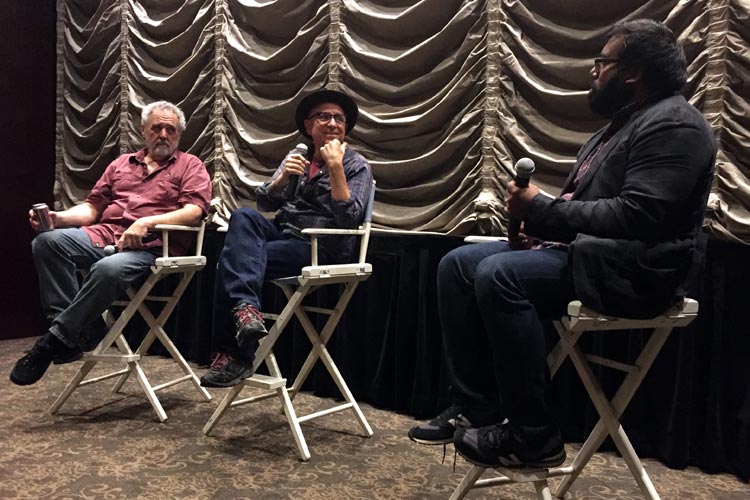The following questions and answers are excerpted from a conversation that followed the NBR screening of Call Me Lucky.
How did this film develop?
Bobcat Goldthwait: Barry had written an article for the Boston Phoenix about his experience testifying in front of the Senate Judiciary Committee. It’s just so funny and well written… it reminded me of a Frank Capra story. And that was in the mid ‘90’s. I thought, wow, I’d love to do this story. And of course I’ve known him most of my life, and I admire him… he’s like a big brother to me. I thought it’d be a good movie to make some day. I actually wanted to do it as a narrative, with another actor playing him. But my best friend Robin Williams, who knew I was passionate about telling Barry’s story, suggested that I make it as a documentary. And he gave me the initial money I needed to start filming, which was just in February 2014. So it all came together pretty quickly.
“This wasn’t going to be a straight biography of a comedian.”
What pushed you to that moment, when you decided to tell your story?
Barry Crimmins: My sister kept saying, “I’ve got to talk to you about something,” and she kept dragging it out over months. And I sort of always knew… but I never knew, you know? And then she discloses what happened to me, and I had always seen this picture of her in my head, of her on those stairs. And when she finally disclosed to me, between that and what other people sort of knew… at that point, the ship finally stood up in the proverbial bottle, for me. I was going to spend more time not dealing with it publicly at that point, but the Rodney King stuff happened. And we were doing a benefit for the Southern Poverty Law Center, and I was really upset about the way that people were talking about these kids in Los Angeles. And so I did this monolog saying, “you know, I was a kid once. Stuff happens to kids.” And that’s when it came out. I didn’t talk about it in public again for another year after that – I turned down a bunch of opportunities to be on daytime tabloid TV shows, because that’s not where this belongs. And then about a year later I wrote the Boston Phoenix piece. And since then, I’ve been a very public advocate for survivors of child sexual abuse. At the time I started this, male survivors of child sexual abuse were kind of unheard of.
The film begins as a classic homage, and then there’s a dramatic turn in the middle. How did you go about making that decision?
Goldthwait: I had an idea of how I wanted to tell the story—I wanted Barry’s disclosure to happen about forty minutes in. I also felt it was important, tonally, to let people know that it wasn’t just going to be a straight biography of a comedian. So that’s why we put in some of the political stuff, as a little “seasoning.” But I’m really glad we cut the car chases out… that was smart of us.
What was your first reaction when Bobcat approached you about making this film about your life?
Crimmins: He’s my buddy. And, I’m in show business. “A documentary about me? Great, let’s do it!” Bob knew I had stuff to say, and believe me… I’m not very commercially viable most of the time. It’s not like there are meetings happening right now where people are saying, “we need a guy who will denounce our thoroughly corrupt system… and that’s the light stuff. Then he’d go into the child rape.” But this is about getting the message out, for all of us. If you don’t have personal experience with this, believe me, you know someone who does. For instance, when people make your life hard, and you can’t figure out why. When people behave terribly toward you, they’re telling you they’re in pain. And if you can start to source that pain, you can start to understand why they behave the way they do.

